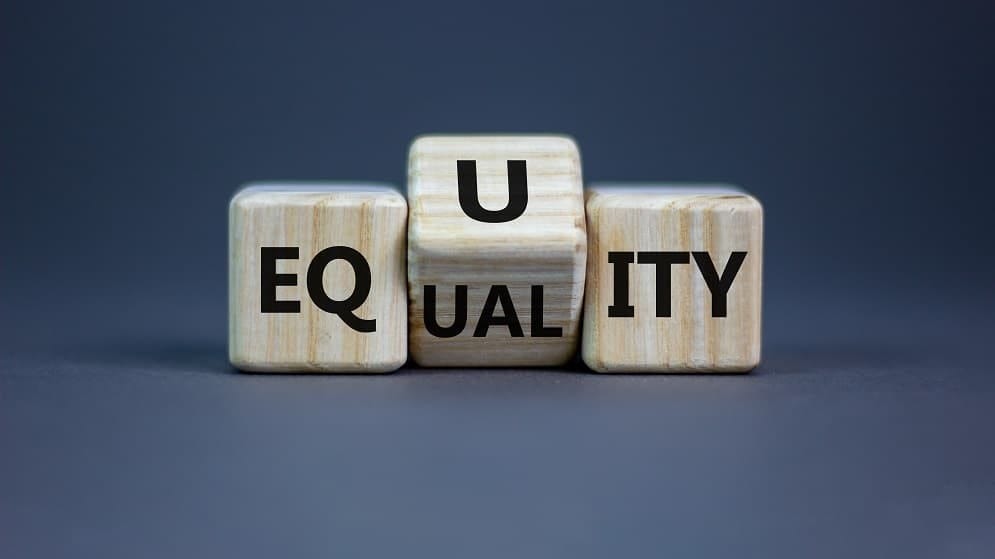The Equality Enigma: Distinguishing Opportunity from Outcome
Opportunity vs. Outcome and the Perilous Path to Utopia
In today's increasingly polarised political landscape, the debate between equality of opportunity and equality of outcome has taken centre stage, dividing friends, families, and nations. As a species hardwired for connection and acceptance, the quest for an equitable society is, at its core, a noble pursuit. However, the road to achieving this noble goal is fraught with obstacles, and the distinction between these two forms of equality is critical in understanding the potential dangers that lie ahead.
To begin, let us first define the two concepts at play. Equality of opportunity refers to a social environment in which all individuals have the same chances to achieve success, unhindered by discrimination or artificial barriers. This form of equality is closely tied to meritocracy, where people rise or fall based on their abilities and efforts. Conversely, equality of outcome demands that individuals achieve the same level of success regardless of their abilities, efforts, or circumstances. In essence, this approach seeks to level the playing field by redistributing resources and opportunities to create uniform results.
At first glance, equality of outcome might appear as a more compassionate, just approach to societal organisation. After all, who wouldn't want to live in a world where everyone has the same level of success, happiness, and fulfilment? However, upon closer inspection, the pursuit of equality of outcome reveals itself as a dangerous road paved with the suppression of individuality, the stifling of innovation, and the erosion of personal freedom.
First and foremost, the quest for equality of outcome necessitates the subjugation of individuality. To achieve uniform results, society must forcibly mould individuals into a single, homogenous mould. This process of standardisation not only erases the unique characteristics that make us human, but it also denies us the right to forge our own path in life. As Nietzsche so eloquently put it, "You must be ready to burn yourself in your own flame; how could you rise anew if you have not first become ashes?" In other words, personal growth and self-discovery are inextricably linked to our individual struggles, triumphs, and failures. By striving for equal outcomes, we rob ourselves of the opportunity to learn, grow, and, ultimately, become the best versions of ourselves.
Moreover, pursuing equality of outcome stifles innovation and creativity, the lifeblood of progress. As history has shown, societies that champion individuality and meritocracy tend to foster an environment where new ideas, technologies, and solutions can thrive. Conversely, societies that enforce uniformity often stagnate, as there is no incentive for individuals to push boundaries or challenge the status quo. By rewarding mediocrity and penalising excellence, we inadvertently create a world where progress is slowed and human potential is squandered.
Perhaps the most sinister aspect of pursuing equality of outcome lies in its tendency to erode personal freedom. To enforce uniform results, the state must inevitably exert control over virtually every aspect of life, from education and employment to the distribution of resources and opportunities. This level of control is antithetical to the very concept of freedom, as it requires the surrender of individual autonomy to the whims of a ruling authority. As the great Russian novelist, Aleksandr Solzhenitsyn, poignantly observed in his masterful work, The Gulag Archipelago, "The line separating good and evil passes not through states, nor between classes, nor between political parties either—but right through every human heart." Put another way, allowing power to become concentrated in the hands of a select few inevitably results in widespread corruption, particularly when people remain passive as individual freedoms are gradually eroded.
In contrast, a society that champions equality of opportunity encourages self-determination and personal growth, fostering an environment where individuals can unleash their full potential. By ensuring that everyone has access to quality education, healthcare, and a level playing field, we empower people to forge their own paths and contribute meaningfully to the progress of humanity. Instead of forcibly standardising outcomes, we celebrate the rich tapestry of human experience and create a dynamic, innovative, and, ultimately, more equitable society.
However, it is important to acknowledge that equality of opportunity is not without its own challenges. Discrimination, systemic injustices, and economic disparities continue to plague even the most progressive societies, hindering the pursuit of true equality. Thus, the road to achieving equality of opportunity is not without its obstacles. Nevertheless, the pursuit of this form of equality is a more fruitful endeavour, as it seeks to elevate humanity through the celebration of individuality, the protection of personal freedom, and the fostering of an environment where innovation can flourish.
In conclusion, understanding the critical difference between equality of opportunity and equality of outcome is essential in recognizing the potential hazards of pursuing the latter. Although striving for a fairer society is a commendable aim, we must acknowledge the perils that accompany this journey. The pursuit of equality of outcome, while seemingly benevolent and just, ultimately guides us down a treacherous path that risks destabilizing the very bedrock of a free and thriving society. Let us instead dedicate ourselves to pursuing equality of opportunity, embracing both the obstacles and victories that lie before us, and shaping a world where the human spirit can ascend to unparalleled heights.



